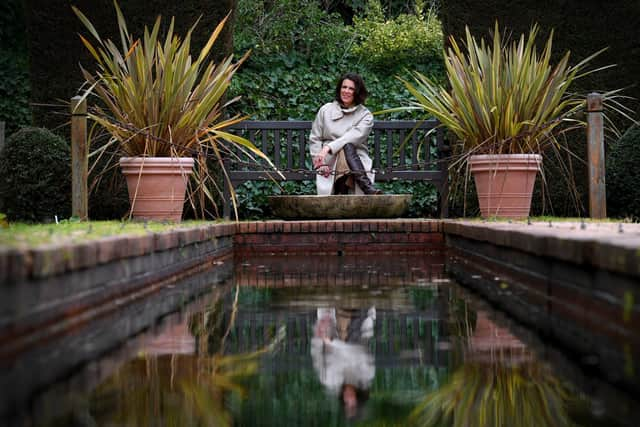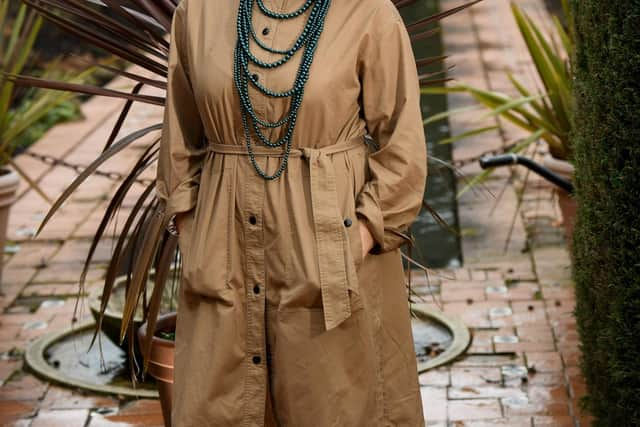Habitbreaker: How saving a man standing on a motorway bridge helped turn Chrissie Wright's life around
"He was an alcoholic, he had just lost his brother and I’d just lost my father. He was in a toxic relationship and I was just coming out of a bad relationship. My business was failing because I was drinking, he’d just lost his job. There were so many mirror images. We were both sat there in tears on the footpath of this bridge.”
Never once did she say to him, ‘that’s me’, but the moment was a turning point for Chrissie, a wake up call that it was time for change. She called the doctors the next day and told them she had a drink problem. By the time she had a space on a support programme three months later, she had cut out alcohol and had launched Habitbreaker, an organisation which helps people to detach from negative habits that can detrimentally impact their lives.
Advertisement
Hide AdAdvertisement
Hide AdFour years on, Chrissie, who lives in Leeds, describes herself an advocate to other young girls and women who may have chosen alcohol as a route to get them through life. She’s found her purpose, she says, aspiring to support more than one million women and teenage girls who need to break a cycle of “bad” life choices - and it’s driven by her passion for female empowerment, leadership and self-development.


“I genuinely have no regret about what’s happened to me,” the now 47-year-old says. “Because I do believe, and I’m very spiritual, that this was the path I was chosen to go down…I do believe I’m here to make changes. To be able to pull myself out of trauma and turn it into some form of triumph - I know I’ve saved lives and I’ve been able to carve out a safer space for the next generation in certain homes - I think is a powerful place to be and I’m truly grateful.”
At the end of last year, Chrissie was involved in a domestic abuse campaign, working on the set design for an educational film for Independent Choices, a Greater Manchester-based professional organisation, which works with victims of domestic abuse and violence. When she experienced domestic abuse herself, Chrissie describes feelings of shame, rejection, unworthiness and unlovability. She’s now in talks with The Lord Mayor of Manchester about how she can share her life experiences in the hope of inspiring and empowering teenage girls and women.
Chrissie says: “Many people assume that domestic abuse is just physical harm, but it is more than that - controlling behaviour, financial, emotional and sexual are other elements which need to be understood by all, if lives and the wellbeing of those who are vulnerable right now can be changed. It’s also important to understand how being in a domestic abuse relationship can break women in other ways too - turning to alcohol is one way women choose to cope, and this brings its own additional problems...I am passionate about sharing my story and using my skills to show women that they don’t need to stay stuck in situations where they are victims – and that there are ways they can take small steps to change their circumstances and lives.”
Advertisement
Hide AdAdvertisement
Hide AdChrissie was just 14 when she first started drinking, seeking “solace” in alcohol as she struggled to deal with her parents’ divorce. As her teenage years progressed, she developed an unhealthy habit and found herself turning to alcohol as a “coping mechanism” in periods of turbulence or trauma as well as enjoying a drink when times were good. In adulthood, she became a functioning alcoholic, still manging to run an events floristry and styling business – though she recognises now that the drink was taking its toll.


Two things set her on a path of change. The first was the loss of her father in 2018, after which she began to seek healing experiences. The second was the meeting with the man on the motorway bridge. “I had a really intuitive pull that day that I had to be somewhere else, so I left where I was, got in my car and saw this guy on this bridge. I drove past thinking he looked troubled but then this big voice was telling me you need to turn around.” Chrissie describes how she cradled the man in her arms until the emergency services arrived. “The next morning I woke up and thought there’s some serious life changes to make.”
Chrissie found the strength to break free from alcohol, having been in its clutches for 30 years. Her focus now is on Habitbreaker and the courses it offers to help people to reduce negative habits such as drinking, taking drugs or eating too much, and enrich their lives in other ways. She also provides private online spaces for people to talk and in-person workshops for groups of women, schools and corporate companies.
“Fundamentally it’s about finding a new, healthier habit,” she says. “With alcohol, I particularly help people in the grey area of drinking, people who come home and say I need that because I’ve had a really bad day at work or I’ve had a really good day and I need to celebrate. I’m the voice of intervention, knowing how things started with me. When things were good, I thought I’d have one or two drinks and then before I knew it, I was in the habit of when [rubbish] hit the fan, one bottle became two bottles and two bottles became a third and that third bottle could very easily have led me to being a non-functioning alcoholic.”
Advertisement
Hide AdAdvertisement
Hide AdChrissie explains how she is driven by a need to provide younger people in particular with more social education, “to remove the still existing barriers about being open about our struggles and mental health challenges”.
“Things are improving in this area but there is still so much more to do,” she says. “I feel it’s a duty of people like me, who have lived experience, to use what I have learnt and connect with others on a very ‘real’ basis, to show that there’s light at the end of the tunnel.”
